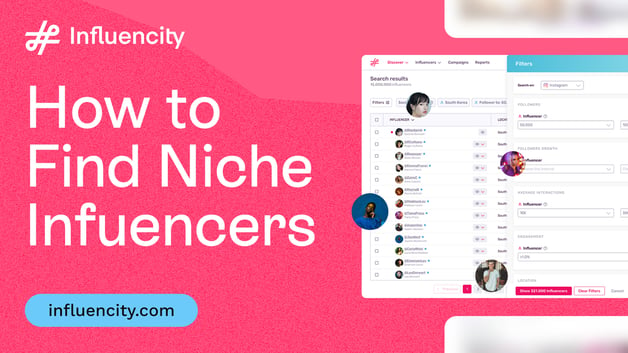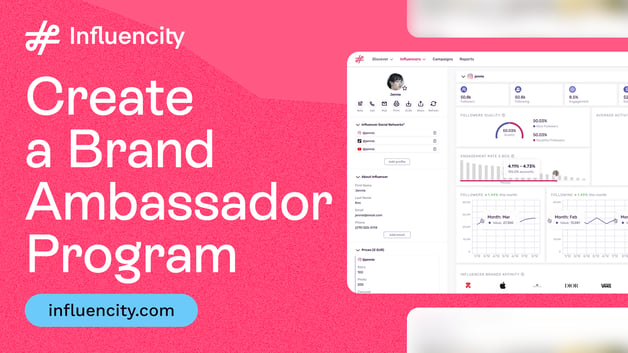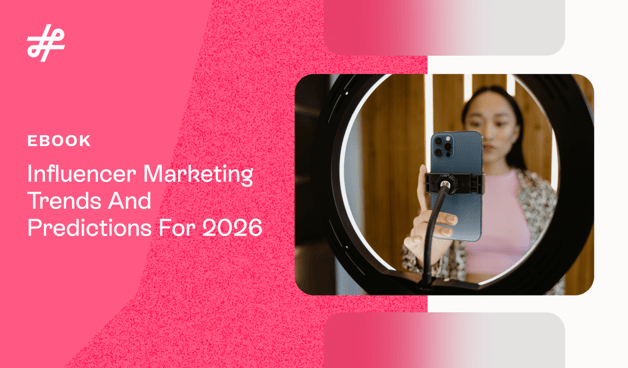Influencer Marketing vs Brand Ambassadors: Comparison and Tips for Choosing
Influencer marketers and brand ambassadors are two terms that are often confused. However, there is a notable difference between the two concepts. Put simply, the main difference between influencer marketing vs brand ambassador marketing is that in influencer marketing brands usually collaborate with influencers on a short-term basis. In contrast, an ambassador is someone who has developed a long-term relationship with a brand, and they are usually familiar with the products or services that they are promoting.
In this article, we are going to take a deep dive into the differences between influencer marketing vs brand ambassador marketing to help you decide which strategy would work best for your brand.

What is an Influencer?
Although there are various types of influencers, they are all focused on one primary goal: swaying their followers towards a specific brand, product, or service that they publicly endorse.
Influencers usually build their reputation through social media channels by building an audience of followers who value their comments and opinions. They are thought leaders who lead by example, and they share their own personal brand through the content that they post. They collaborate with a range of brands and promote their products or services by providing them with social proof. Essentially, influencers use their reputation to impact the buying habits of consumers.
An influencer can help you:
- Increase your brand awareness on social media platforms
- Reach a larger audience so that you can grow your customer base
- Build a reputation based on trust and brand authority
- Connect with different demographics and develop more leads
What is a Brand Ambassador?
A brand ambassador is someone who works in partnership with a brand. They regularly use the products or services that they endorse and promote brands based on genuine recommendations.
Brand ambassadors usually collaborate with brands in a more long-term capacity. Because of this, content usually comes across as being more authentic. They also tend to create their own content rather than collaborating with a brand on specific campaigns. Essentially, they choose to endorse brands because they genuinely believe in them. But there needs to be an existing relationship for this to work.
The benefits of collaborating with a brand ambassador include:
- Higher rates of revenue for a brand
- Higher levels of direct feedback from customers
- Increased brand awareness on a larger scale, often due to word-of-mouth recommendations
What Are the Biggest Differences Between the Two?
Here are some of the key differences between influencer marketing vs brand ambassador marketing:
- Experience of your brand: Brand ambassadors are people who already love your product and have a pre-existing connection with your brand. Influencers, in turn, tend to require detailed briefs relating to who you are and what your brand has to offer, as they are likely to have little (if any) experience with your products. You will also need to build a connection with them before they fully understand who you are.
- Relationship: You will usually have an existing partnership with a brand ambassador. They might, for example, already be a loyal customer or past employee. With an influencer, you will usually seek them out primarily because of the reputation they have established or their personal brand. This reputation can help your own brand acquire a degree of social proof.
- Content: A brand ambassador may already work in your industry and be familiar with your products. This means they already understand how to create the right content in order to engage your target audience. An influencer, in turn, is likely to work with a range of brands so they will need more input from you in order to create the right campaigns.
- Benefits: Because your relationship with a brand ambassador is more of a partnership, they are more likely to promote your product through other channels, such as word of mouth. They also understand your audience better, so they know what to say to them to pique their interest. An influencer, in turn, is exclusively focused on posting campaign posts. Because this is what they do for a living, they will probably better understand which marketing tactics will work better to engage their audience. They are also likely to have a much larger audience. And because working with influencers tends to be a more short-term collaboration, you can move on to a different influencer if you don’t get the results that you hoped for from a campaign.
Tips for Choosing the Best Fit for Your Brand
Let’s finish by looking at a few tips to help you choose the right fit for your brand. That way, you can decide whether influencer marketing vs brand ambassador programs would better suit your marketing strategy.
- Identify your goals. What are you looking to achieve? An ongoing relationship that helps you build your brand over time (brand ambassador)? Or a short-term collaboration that creates a buzz around your brand (influencer marketing)?
- Determine your target audience. Who are you trying to reach? A brand ambassador will usually have a niche audience, whereas an influencer is more likely to have a larger, more general following (unless you choose a niche micro- or nano-influencer).
- Choose your content and channels: Which social media platforms do you want to use for your campaigns? Which platforms do your identified brand ambassadors and influencers use? What about the types of content they usually share? Do they align with your campaign needs and expectations?
- Evaluate your timeline. When do you need to launch your campaign? It can take a while to develop a relationship with a brand ambassador. With an influencer, provided you give them a detailed brief explaining who you are, what you want, and how you want them to do it, then you can usually launch a campaign fairly quickly.
A good influencer marketing platform will give you the tools to work with both influencers and brand ambassadors. These platforms usually include a search engine that lets you filter for influencers in different sectors and niches and an IRM (Influencer Relationship Management) tool, that helps you develop and maintain working relationships with content creators over time. No matter where you stand in the influencer marketing vs brand ambassador debate, a tool like this help you reach the largest and most relevant audience for your campaign.

Tags:

















%20and%20How%20Can%20They%20Benefit%20Your%20Brand%20article.jpg?length=628&name=What%20Are%20Key%20Opinion%20Leaders%20(KOL)%20and%20How%20Can%20They%20Benefit%20Your%20Brand%20article.jpg)









